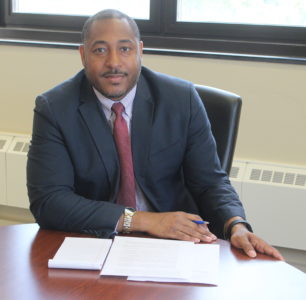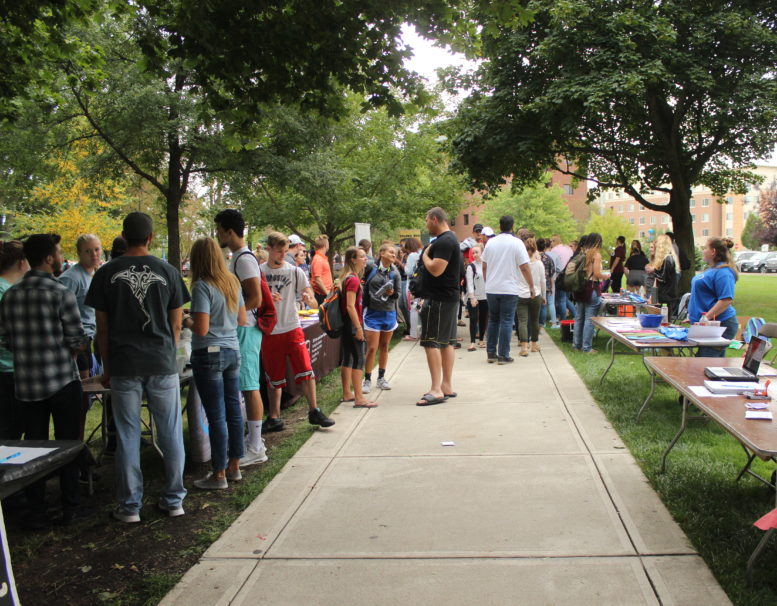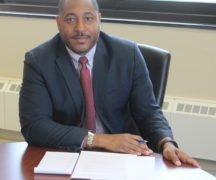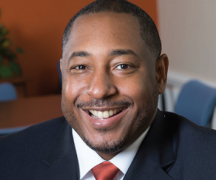By DAVID DUPONT
BG Independent News
Campus Fest last Thursday offered Bowling Green State University students a wide variety of ways to engage with campus and their community.
Maybe they want to join the Japanese Club or volunteer at the Black Swamp Arts Festival. Greek life was well represented, as were religious and cultural groups. Students were offered opportunities to play sports and to lift their voices in song.

Dr. Thomas Gibson
Thomas Gibson, vice president for student affairs and vice provost, likes this kind of event. “What I enjoy most is seeing the students make this campus their own and occupying every part of it.”
Gibson, just starting his second year at BGSU, oversees a broad swath of offices involved in aspects of students’ BGSU experience.
The vice presidential part of his title, he said, “means … I am responsible for matters impacting student life outside of the classroom that involves a large portfolio of student services.”
The vice provost part “provides greater interaction with academic affairs that allows me to have a voice at the table to make sure that matters that are important to students are shared in academic affairs spaces. … I have responsibility and partnership with colleagues in academic affairs to work for student retention and student success.”
Learning communities, for example, are “a wonderful partnership,” he said. They bring together residential life and students’ academic majors “to develop an academic community of learners. That’s a good partnership.”
After taking a year to observe and talk with faculty, administrators, staff, and students, Gibson spearheaded, a restructuring of his division’s staff.
The reorganization involved “assessing the talent we have within the division and how can we better leverage those talents within the division, and maximize the work of individuals.” (See details at: http://bgindependentmedia.org/bgsu-division-of-students-affairs-announces-changes/)
This includes a closer link between Career Services, which is under Academic Affairs, with Student Affairs. “There are so many opportunities to integrate career readiness within our student affairs programing,” Gibson said.
The restructuring does not involve the creation of new positions, he said. Though some hiring will take place, for a permanent director of residential life and a new director of the women’s center, for existing positions.
The announcement of the change explained: “The new structure will encourage greater integration with the Department of Higher Education and Student Affairs (HESA) and the Division of Academic Affairs, and will enhance student well- being and promote a vibrant campus life and residential experience, along with intentional efforts to foster a community of inclusion.”
A key to achieving that is engaging students in their education. “We’re trying to make a relatively large institution seem smaller. I want to create greater opportunities for interaction between the student and the institution.”
Currently about 6,000 of BGSU’s 16,500 students studying at the Bowling Green campus live in residential halls. This fall they have one less option as the Harshman Quadrangle is slated for demolition.
Gibson said that the university must study what the future need for residence halls is before deciding whether or not to add rooms. Demographics point to a declining number of college-age students, he said.
Meanwhile the university is leasing off campus space to house some students.
The university is pursuing offering more online courses and majors and developing professional master’s degrees.
Getting students who live off campus engaged is more difficult, Gibson said. “All the research says students who do not reside on campus face engagement challenges, and we know engagement is closely correlated to retention and graduation.”
His division has an office for off-campus students to provide the resources they need.
The student activism that has been obvious since the November election, Gibson said, has demonstrated that students want to be heard.
Gibson, President Mary Ellen Mazey, and Provost Rodney Rogers went on a listening tour last academic years, and Gibson has initiated First Friday sessions where “I make myself available in students spaces, the student union or dining halls, to discuss any matter that’s important to them.”
That resulted in changing late night shuttle schedules and efforts to bring more organic foods into the dining halls. These were positive steps, he said, because they show “communicating your concerns does result in action.”
Also a community conversation with administrators including Police Chief Mike Campbell was held to discuss students’ concerns about threats of political violence.
The closer ties with HESA are intended to better integrate scholarship about higher education issues with the actual practice, Gibson said. The scholarship conducted by those studying for graduate degrees in higher education can inform actions taken by administrators. On the other hand, the administration of the university can provide material and case studies for the research.
“The ultimate goal of this work,” Gibson said of the restructuring, “is to enhance student well-being while promoting a vibrant campus life and residential experience for all students.”




